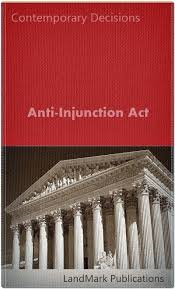On December 13, 2016 we posted Treasury Releases Their Report On The IRS Whistleblower Program where we discussed that it can take from five to seven years, or more, for the IRS Whistleblower Office to make a decision about whether to pay an informant for information about individuals or businesses that don't pay all of the tax they owe and that currently, the whistleblower office is processing roughly 1000 claims a month and it has has helped the IRS collect significant amounts of revenue by facilitating whistleblower claims reporting violations of the tax laws that may otherwise go unidentified.
Now according to Law360, The government sequester struck again, this time in the U.S. Tax Court. when a judge ruled Thursday that a tax whistleblower had signed away his rights to challenge an Internal Revenue Service decision to reduce his $2.9 million award because of the government funding cut.
Normally, decisions to alter or reduce an award would be reviewable in the Tax Court, however Tax Court Judge Albert Lauber wrote that the whistleblower’s agreement with the IRS for his award waived his rights to administrative review of the award after it was reduced because of the government sequester. And Judge Lauber found that there was no reason to overturn the presumption that the agreement between the whistleblower and the IRS was valid.
“On that point, we hold that petitioner is bound by his knowing and explicit waiver of his judicial appeal rights and
hence that he may not contest the award that he accepted,” Judge Lauber wrote.
The whistleblower, whose name has been withheld, originally found that his award was docked by 7.3 percent before he received it in 2014. The IRS justified the reduction by citing the sequester in the Budget Control Act of 2011, which caused much of the government to reduce spending by 10 percent, according to the decision.
 The case began in 2008, when the whistleblower provided original information to the IRS that resulted in the agency collecting more than $14 million from an unnamed taxpayer. Following that, the agency determined the whistleblower was entitled to a 22 percent award, or about $2.9 million, in 2013. The whistleblower elected to participate in an accelerated award process, which allowed the disbursement of the award more quickly, but waived the normal appeal process, the decision said.
The case began in 2008, when the whistleblower provided original information to the IRS that resulted in the agency collecting more than $14 million from an unnamed taxpayer. Following that, the agency determined the whistleblower was entitled to a 22 percent award, or about $2.9 million, in 2013. The whistleblower elected to participate in an accelerated award process, which allowed the disbursement of the award more quickly, but waived the normal appeal process, the decision said.
However, following that determination, the IRS notified the taxpayer that he would receive more than $200,000 less due to the sequester. In subsequent communications with the IRS, the agency stated that it would not accept a partial agreement of the award, such as allowing the $200,000 reduction to be challenged separately, to allow the proceeding to move forward, the court wrote.
The whistleblower challenged the award following its receipt in 2014. However, Judge Lauber noted that the whistleblower entered into his agreement with the IRS fully knowing that he would not have the ability to challenge its decision.
Judge Lauber wrote that “on the basis of the regulations that existed at that time he could not know that he would actually receive an award in the agreed-upon amount until the check was in fact issued to him,” and that the whistleblower sought a different, swifter avenue to receive payment that waived his rights.
“His effort to obtain the benefit of immediate payment while later seeking judicial review directly contravenes the regulatory framework, which provides for payment only after all issues have been finally determined,” the judge wrote.
Ultimately, Judge Lauber held that the whistleblower had established jurisdiction for the appeal, but had waived his rights and granted summary judgment to the IRS.
The Tax Court also held that, where IRS doesn't issue a final determination letter confirming a whistleblower's award, the date that begins the 30-day period for filing a Tax Court appeal of that determination is the date on which IRS mails the whistleblower's check.
Want a Reward of Between 15- 30% of
Underpaid IRS Tax Liabilities for
Blowing the Whistle on a Tax Cheat?
_____
____
Contact the Tax Lawyers at
Marini & Associates, P.A.
for a FREE Tax Consultation
or Toll Free at 888-8TaxAid (888 882-9243).














